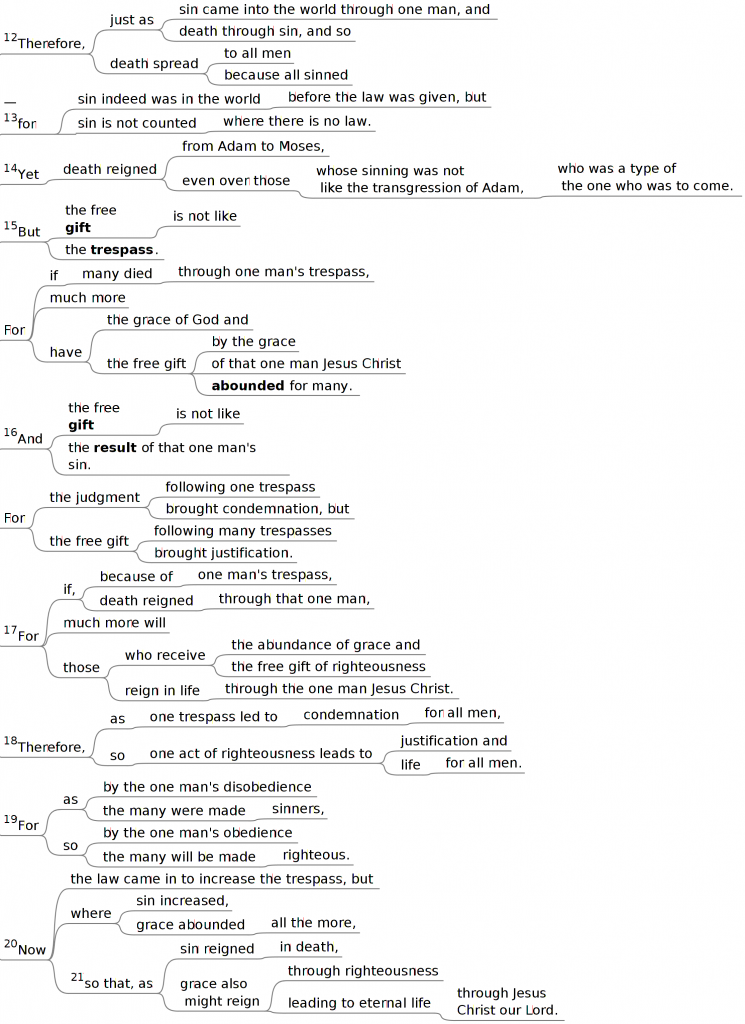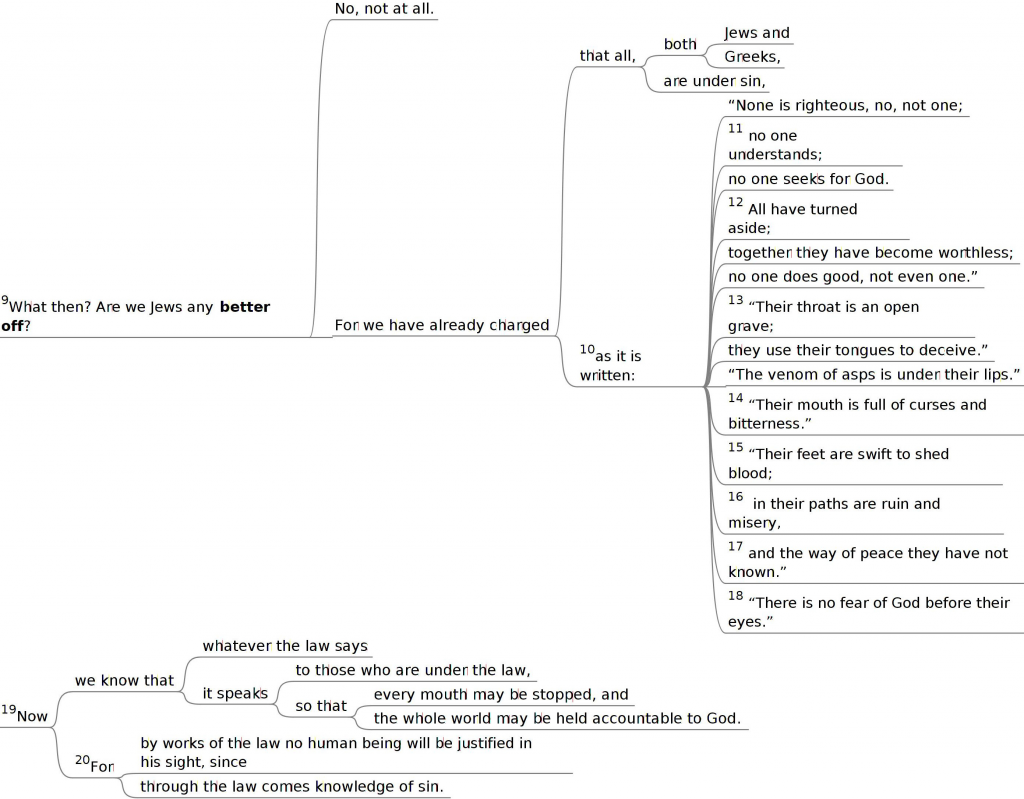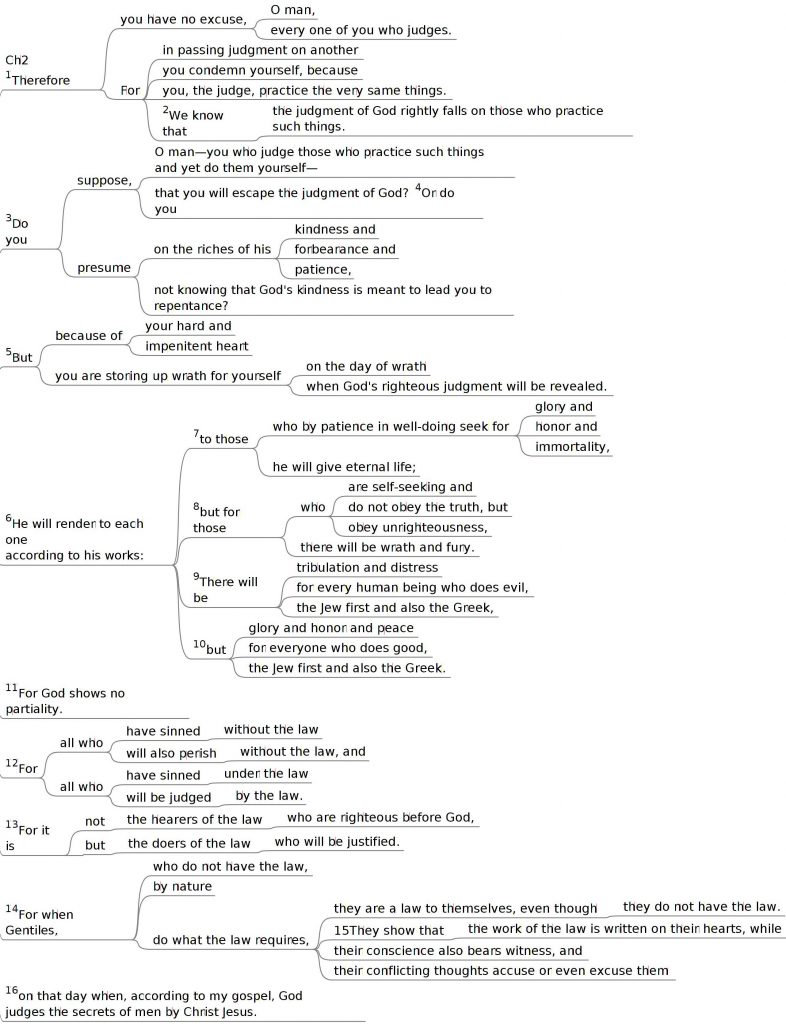for whoever has entered God’s rest has also rested from his works as God did from his. Let us therefore strive to enter that rest, so that no one may fall by the same sort of disobedience.
Hebrews 4:10-11 (ESV)
This passage I have long found difficult to understand, and even moreso to apply. But today I heard a sermon addressing rest, and a couple things fell in place.
The preacher said that God didn’t rest because he was tired, but because he was satisfied. I think this is not the only motive here (the example for our good also being there), but I think it is an important point.
For us, then, if we desire to follow His example, then rest should also include satisfaction. But for some of us perfectionists, satisfaction is hard to achieve.
My doctoral coursework beat some of that out of me. I was constantly faced with the choice of trying to work longer on something, in hopes of being satisfied with it later, while acknowledging the cost that work would have, on my family, sleep, and ability to do other things which I also found important. Ultimately I came to say that I simply needed to be satisfied with what I considered B level work. The irony is that I never actually got a B, however much I felt that was the most that my work deserved. So the standards of those judging my work were not the same as the standards I held for myself. In this case, logic dictates that meeting higher standards is in excess, and a bad use of my time and energy.
But I still want things to be without flaw, even on points which are clearly unimportant to everyone around me. So there remains a discipline to be satisfied, to “strive to enter that rest“.
Which brings us to the irony of the passage: “strive to enter that rest” is not something that easily fits into the head. How does one strive to rest? One answer suggests itself by the reason for doing this: “so that no one may fall by the same sort of disobedience”. That is, not striving to enter rest is disobedience? That doesn’t necessarily help things make sense, except to make clear that the striving and resting is a question of obedience, rather than just putting our work towards our pleasure or ease.
The word obedience leads us to another. While verses 6 and 11 use the word disobedience, chapter 3, verses 18-19 equate disobedience with unbelief:
And to whom did he swear that they would not enter his rest, but to those who were disobedient? So we see that they were unable to enter because of unbelief.
Hebrews 3:18-19 (ESV)
Thus not striving to enter rest is not just disobedience, but unbelief. This reminds one of this principle:
For whatever does not proceed from faith is sin. (Romans 14:23b ESV)
Biblical though it be, it would be nice if the above also made sense. I think the connection is that when I insist on using my perfectionist judgement, I’m actually trying to protect myself from failure, and I’m trusting in my own work to do so. Rather, the satisfaction that comes from faith (and thus a right relationship with God) acknowledges that I have already failed so seriously that my works are (and will always be) far insufficient to make up for my failure.
So God’s command to me in these moments is to trust Him and His work in the cross, rather than my standards and my work to meet them. It is an act of faith to set aside my vain attempts at perfection, and to trust rather that I am already OK.
But the act of faith is at the same time an act of striving, because of my need to be freed from slavery to my current set of oppressive expectations, a slavery that I work hard to maintain:
Do you not know that if you present yourselves to anyone as obedient slaves, you are slaves of the one whom you obey, either of sin, which leads to death, or of obedience, which leads to righteousness?… I am speaking in human terms, because of your natural limitations. For just as you once presented your members as slaves to impurity and to lawlessness leading to more lawlessness, so now present your members as slaves to righteousness leading to sanctification.
Romans 6:16,19 (ESV)
When we present ourselves to a master other than God, this is sin by definition: idolatry and a lack of faith (however you want to look at it). I think the trick is to understand that we present ourselves to our perfectionist expectations just as much as we present ourselves to drunkenness, adultery, or pornography. We think that adding another law, or higher expectations, must be something else. But when God talks about lawlessness above, he’s not only talking about no law, but about living outside His law.
So, to wrap this all up together, the command is that we say yes to God as an act of faith and no to our inclinations, as an act of striving, without these being two different acts. And this command is sweet, because the act of faith/striving it requires gives me both a right relationship with God and liberation from slavery to my own oppressive expectations.



